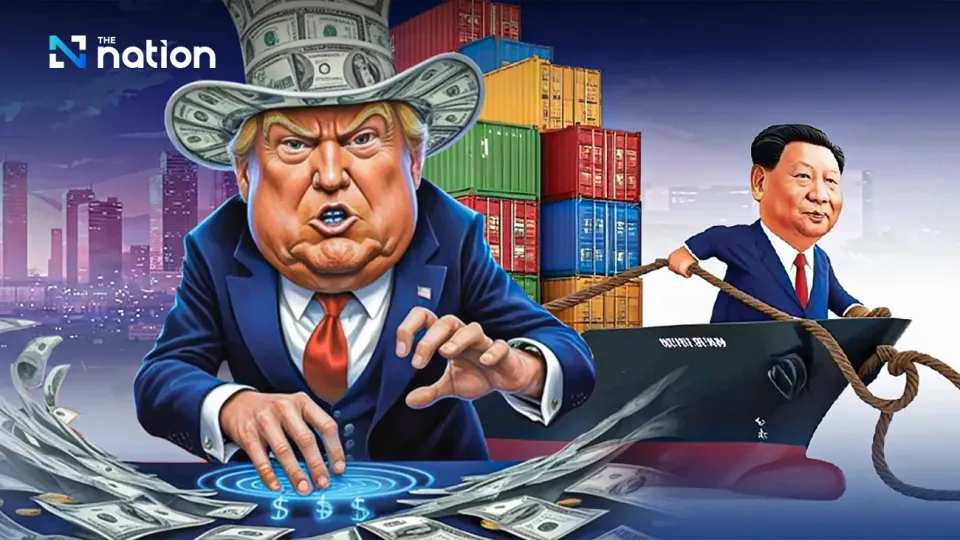February 13, 2025
BANGKOK – Thailand must adapt to boost its competitiveness and economic growth amid shifts in the global economic landscape thanks to US President Donald Trump’s recent trade policies, several experts have said.
Somphop Manarangsan, president of the Panyapiwat Institute of Management, told Thansettakij that the US’s reciprocal tariffs against trade surplus countries would encourage nations to seek new trade partners or focus on stimulating their domestic economies.
He noted that Trump’s policy to collect a 25% tax on imported steel and aluminium could also adversely affect the US, as the prices of cars, refrigerators and other products would likely increase. This policy could also hinder US efforts to reduce inflation and decrease the likelihood that the Federal Reserve will lower policy interest rates, he said.
However, Somphop does not expect Thailand to face severe impacts from this 25% tax on steel and aluminium, suggesting that this policy is aimed at political benefit as the US has a large iron ore smelting plant in the electoral voting state of Pennsylvania.
Panitan Wattanayagorn, an expert in foreign affairs and security, said US trade barriers would trigger a financial burden on consumers. He believes that enforcement of the policy would be delayed to prevent affected countries from issuing measures to mitigate its impact.
He also warned that if the trade war intensifies, many countries would prefer domestic production, which could trigger a global economic slowdown.
Panitan also noted that there could be a change in global economic structure, noting that many countries have reduced reliance on the US, especially on the US dollar to cope with currency exchange risks.
Hence, he said, Thailand should set up measures to mitigate the impact on the business sector, use negotiating skills to ensure national benefits and seek new economic opportunities.
“Thailand should use its negotiation skills and evaluate the situation carefully, because the US and the global stage might not be the same anymore,” he added.
Buranin Rattanasombat, president of the Marketing Association of Thailand, said that Trump’s import tariff policy would affect Thailand’s trade and exports due to rising export costs.
Hence, he said, Thailand should adapt to maintain competitiveness in the global market.
“Trump’s policy does not just affect the economies of the US and China, but also those of other countries, including Thailand,” he said.
He pointed out that China can adapt to the shift thanks to its cheap production costs and heavy infrastructure investment. Similarly, he said, Thailand should take steps to boost its competitiveness and economic growth amid changes in the global economic landscape. The country can enhance the value of its agricultural products and foods, as well as promote tourism to stimulate the economy, he said.
He also advised Thailand to adopt technology in production and service sectors and form trade partnerships at the national or global level to boost competitiveness
“Today, Thailand should become part of the global value chain to make trade partners feel that they cannot go without us,” he added.


